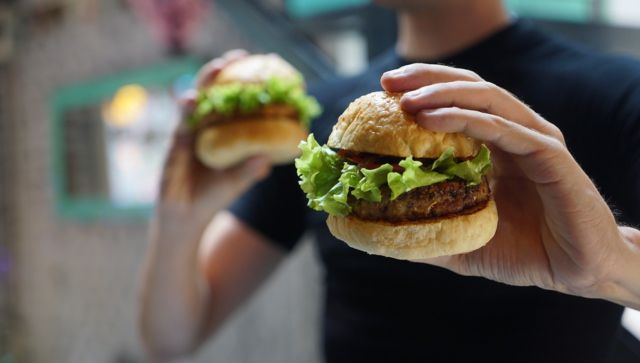Colombia has started levying a tax on ultra-processed food and sugary drinks. Dubbed the “junk food law”, experts say it is the “most ambitious” public health measure in Latin America, according to El País newspaper. The law comes after years of campaigning to regulate ultra-processed food in a country where people have a diet rich in sodium, which is linked to many lifestyle diseases. “This is not to take money from you. This is so that you choose healthy foods and improve the health of the Colombian people,” President Gustavo Petro wrote on X, formerly Twitter. What is Colombia’s ‘junk food law’? Why was it needed? How bad is junk food for your health? Let’s find out. ‘Junk food law’ Colombia’s “health tax” on ultra-processed foods and sugary drinks will be implemented gradually. A 10 per cent tax has been levied immediately, which will increase to 15 per cent next year and eventually to 20 per cent in 2025, as per the El País report. The tax has reportedly been imposed on ready-to-eat foods developed by industries and products high in salt and saturated fat such as cold cuts, chocolates and puffed grain cereals. Drinks such as sodas, malt-based beverages, fruit juices, tea or coffee-type beverages, energy drinks, sports drinks, and flavoured waters will also be taxed depending on the amount of sugar contained these beverages, as per a report in Health Policy Watch. However, some processed foods like sausages are exempt from the tax. [caption id=“attachment_13382712” align=“alignnone” width=“640”] Colombia aims to tackle rising obesity rates with its new law. Reuters (Representational Image)[/caption] Colombia is also adding health warnings on foods containing a high level of unhealthy items, such as sugar or saturated fat. “The tax is applied to the same products that have the health warning label,” Franco Sassi, international health policy and economics professor at London’s Imperial College Business School, told The Guardian. “This creates an information and a financial incentive for the consumer to avoid these products.” Colombia’s health issues The law has been brought to tackle the surge in obesity rates in the country. According to Colombian Health Ministry’s estimate in 2021, around 56.4 per cent of citizens were overweight, as per El País. As per The Guardian, high salt consumption, which is linked to a rise in cardiovascular diseases, such as strokes and heart failure, is also a big problem in the country. An average Colombian consumes 12g of salt daily, among the highest rates globally. About a third of adults in Colombia have high blood pressure. The Latin American nation is also suffering from the impact of non-communicable diseases associated with diet and obesity, such as diabetes. About 76 per cent of all deaths in Colombia are due to non-communicable diseases, reported The Guardian. “We want to avoid following the path of rich industrialised nations like the United States, where diet-linked diseases are a big problem,” Beatriz Champagne, executive director of the Coalition for Americas’ Health, a Latin American advocacy group, told the British daily. “In terms of policies, Latin America is ahead of the curve.” However, there is backlash over the new law as critics say it will hurt Colombians already battling inflation. Some also argue that the law will affect small shopkeepers and producers the most, who would not be able to do much to ensure their products meet health standards, reported El País. How bad is junk food? It is common knowledge that junk food is bad for health. But do you know how bad it really is? If not, we have got you covered. Junk foods are highly processed and are high in energy, salts, sugars and fats. They are also low in nutrients, vitamins and minerals. Most ‘fast foods’ fall in the junk food category. A study published in 2019 found that a bad diet kills more people globally than tobacco. According to The Washington Post, eating a poor-quality diet high in junk food enhances the risk of obesity, digestive issues, heart disease and stroke,
depression , type 2 diabetes, cancer, and may also lead to early death. Research published in the Clinical Gastroenterology and Hepatology medical journal this year revealed that eating fast food is linked with nonalcoholic fatty liver disease. [caption id=“attachment_13382682” align=“alignnone” width=“640”]
Colombia has imposed taxes on sugary drinks. Pixabay (Representational Image)[/caption] A review of several studies warned that eating
fast food more than one time in a week could result in a higher risk of obesity. Those who indulge in fast food more than twice a week could suffer from an increased risk of metabolic syndrome, type 2 diabetes and death from coronary heart disease, The Washington Post reported. “Those eating processed foods daily end up having seven times the risk of early-life stroke. It doubles the risk of heart attacks, doubles the risk of diabetes, and the risk of renal failure. A vast majority of heart attacks and strokes can be prevented if people adopt a healthy lifestyle,” Dr N Prabhudeva, Former Director, Sri Jayadeva Institute of Cardiology, wrote for Deccan Herald. When junk food is so unhealthy, then why do we fail to avoid it? It is not just that they taste good. According to experts, there are various reasons we crave junk foods, including lack of sleep, stress, nutrient deficiency and even hormonal imbalances, reported IANS. Then, what is the solution? As The Washington Post report mentioned, if you really want to have junk food, it is better to consume it less than once a week. After that, go back to your healthy, nutritious meals. With inputs from agencies
Colombia is levying a tax on ultra-processed food and sugary drinks in order to tackle lifestyle diseases, such as type 2 diabetes. Studies have shown that junk foods, which are highly processed, are harmful to health and can even lead to early death
Advertisement
End of Article


)

)
)
)
)
)
)
)
)



